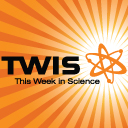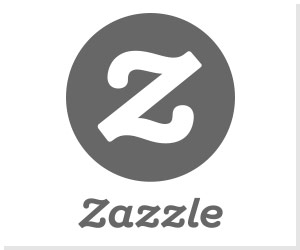Podcast: Play in new window | Download (Duration: 1:57:20 — 107.9MB)
Interview w/ Dr. Ayanna Howard, Cloud Life, Down The Drain, Dead People Problems, Anti-bacterial Enzyme, Turtle Table Manners, Hot Tub Monkeys, Fiery Death, Bird Vision, The Smoking Diet, And Much More…
Want to listen to a particular story from the show? You can do that here. Just look for the time-code link in the description.
DISCLAIMER, DISCLAIMER, DISCLAIMER!!!
Often people have a radically precise,
but horribly inaccurate view of how to go about doing science…
Yes, you can start with a question,
form a hypothesis,
test it rigorously,
and at the end,
wind up with a result…
And, right or wrong,
you will have done something science-y…
And while starting with a question sounds right.
And winding up with a result seems sound.
You could just as easily start with the result and search for questions.
it may be the answer too…
Or you could focus on the rigorous testing,
resolving every variable,
narrowing down a methodology to a set protocol…
then go looking for things to test it with.
There is no one way,
best way,
only way to do science…
We know that people have been doing science
Since long before science was a thing that people knew they were doing…
Because at the core of all that
is science is this simple statement:
Make an observation and follow it wherever it goes for as long as you can.
That’s it.
Well, that and…
This Week In Science,
Coming Up Next…
Interview w/ Dr. Ayanna Howard
Dr. Howard is a busy woman with many roles. As an entrepreneur, she founded Zyrobotics, which develops mobile therapy and educational products for children with differing needs. As a researcher, she is Chair of the School of Interactive Computing in the College of Computing at Georgia Tech University, where she also holds a faculty appointment in the School of Electrical and Computer Engineering and functions as the Director of the Human-Automation Systems Lab (HumAnS). In both of these positions, she innovates in the area of technology development for intelligent agents that must interact with and in a human-centered world. She is also an educator, founding and directing a traineeship initiative in healthcare robotics and functioning as the lead investigator on the NSF undergraduate summer research program in robotics. We are glad she is able to join us this evening. Welcome to the show, Dr. Howard…
Support us on Patreon!
This Week in What Has Science Done for me Lately?!?
“Hey Kiki, Justin, and Blair!
I’d been meaning to write you about how science allows me and my co-workers to work at a geographically distributed company thanks to the science behind networks, video conferencing, and crowdfunding platforms.
But the word “”Lately”” in this segment recently became more relevant to me.
About a month ago, I spent the weekend in an intensive care unit. I was treated for dual pulmonary embolisms (blood clots in both my lungs that were restricting blood to and from my heart). Sur-PRISE!
Apparently, the clots were amazingly extensive. But…
By the mere fact that you’re hearing this, you’ve correctly guessed that the treatment was successful. I got tPA (clot-busting juice) dripped into me via IV. After only about an hour and a half of that, the clots were gone! I felt better laying in that ICU bed at 2 am than I literally had in months!
During that same period, my average heart rate came down from 80-90 bpm to the 50-60 bpm it normally is. My really scary blood pressure dropped back down to its normal level, which is in the 120s / 80s. Apparently, no lasting damage had been sustained to my heart.
For now and for the next few months, I’ll stay on a blood-thinner, just in case.
Anyway, I feel like I often hear about the failures of western medicine. But holy moly, what happened to me was science at its best. My life-threatening condition was so quickly handled, in fact, it almost seems like science fiction! In just one short weekend’s treatment, I’m feeling on top of the world again. I’m amazed, and I hope all of you get to be just as amazed as me, if something should ever go so wrong for you.
All thanks to science.
And thanks This Week in Science, for being awesome!
Bruce R. Cordell”
Cloud Life
Could bacterial life exist in the clouds of Venus?
Down The Drain
There may be hundreds to thousands of baby black holes circling the drain of Sagittarius A* at the Milky Way’s center.
Dead people problems
A new analysis of early human burial sites suggests that they are not indicative of ritual burial, but rather scavenging. If supported further the evidence could pose a problem to the idea that early people had “culture”.
Anti-bacterial enzyme
A synthetic enzyme produced in a lab is effective at putting holes in bacteria when stimulated with light, and could be beneficial for use in hospitals and other places needing sterile surfaces.
Sea turtles have table manners
A recent study using crowd-sourced images shows that sea turtles use their flippers to manipulate food, despite the fact that they evolved for locomotion.
Japanese macaques, or “snow monkeys,” prove hot tubs could be good for you
Or, more accurately, hot tubbin reduces stress, most likely from cold, in these snow-dwelling primates. Does this mean I can get a hot tub covered by my health insurance??
Fiery Death
Tiangong-1 met its end this past weekend in the expanse of the Pacific Ocean.
Bird Vision
Magnetoreception in birds is possible thanks to a protein in their eyes.
Smokers have a worse diet than non-smokers
While smokers often ate less in quantity than non-smokers, the quality and calorie count was not good. The question is, what side of cause and effect is this on? Or is it just another sticky correlation?
If You love TWIS, please consider making a donation below.
Don’t forget to tell a friend about TWIS, and to check out our Patreon page!


